Point-of-Care Ultrasound (POCUS) Curriculum
Overview
Point-of-care ultrasound (POCUS) is increasingly recognized as a crucial skill in the practice of internal medicine. Its clinical benefits are well-documented, enhancing patient care across various medical scenarios. The Alliance of Academic Internal Medicine (AAIM) advocates for the comprehensive integration of POCUS throughout the continuum of medical training.
Integrated POCUS Training Program
Our residency program offers a progressive three-year longitudinal training in POCUS. Designed to immerse residents in both theory and practical application, the curriculum combines lectures, hands-on practice sessions, and supervised clinical experiences. Residents gain extensive exposure to POCUS in the medical ICU and cardiac care unit under the guidance of chief residents and certified faculty specializing in pulmonary and critical care medicine.
Hands-On Learning and Resources
Each floor team is equipped with dedicated handheld ultrasound devices for daily rounds, facilitating immediate clinical decision-making. Advanced ultrasound equipment is also available in our intensive care units and emergency department, ensuring comprehensive training across all clinical settings.
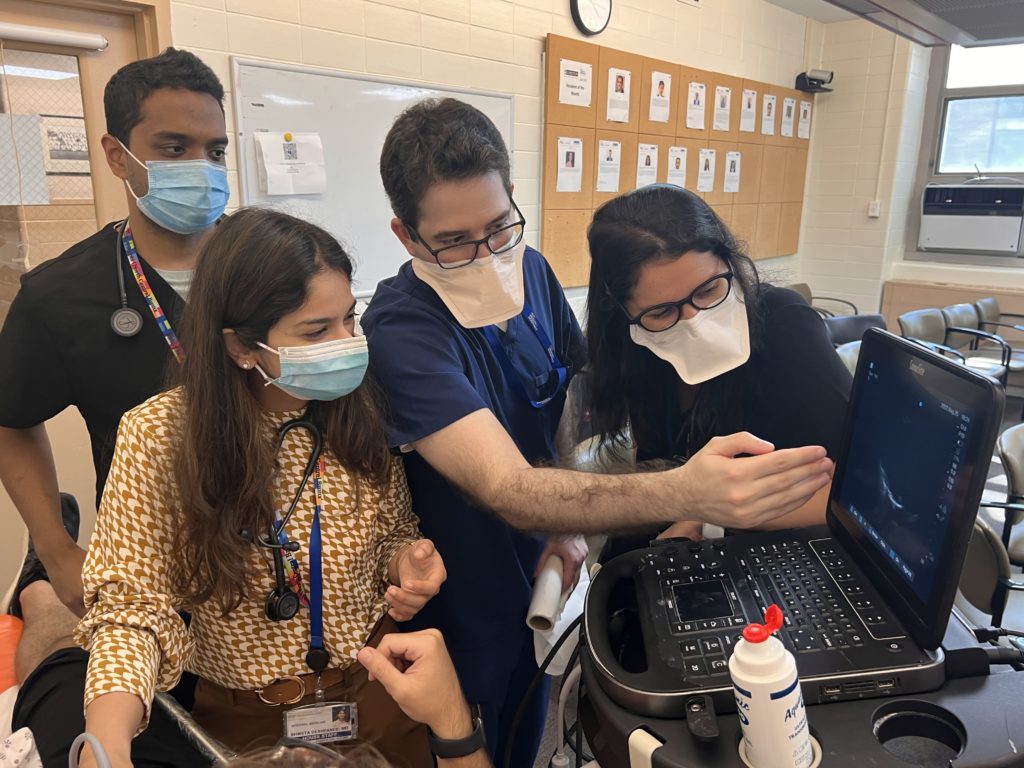
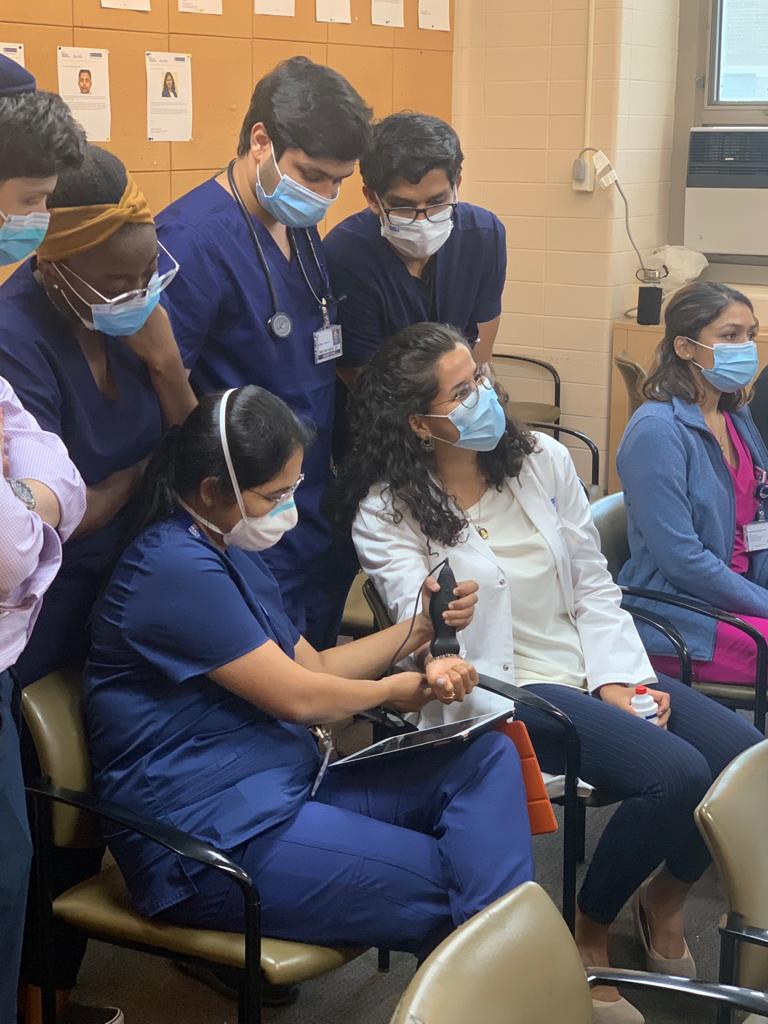



Curriculum Goals
Upon completion of our residency program, residents will achieve the following competencies:
Foundational Knowledge: Gain a solid understanding of ultrasound physiology and differentiate between normal and pathological presentations.
Clinical Proficiency: Independently perform point-of-care ultrasound (POCUS) assessments across various organ systems.
Educational Capability: Develop skills to effectively teach POCUS techniques to junior residents.
Clinical Impact: Utilize POCUS to expedite diagnoses, enhance procedural accuracy, and deliver high-quality patient care.
Curriculum Structure
Our curriculum employs the following effective teaching methods:
Short Didactic Sessions: Engage residents with concise theoretical insights into ultrasound principles and applications.
Hands-On Practice: Provide frequent opportunities for hands-on scanning during practice sessions, offering real-time feedback on technique.
Case-Based Learning: Facilitate discussions centered around clinical cases, emphasizing the interpretation of pathological ultrasound findings.
Clinical Integration: Offer practical experience through hands-on sessions with real patients, ensuring practical application of learned skills.
Assessment and Feedback: Conduct pre- and post-curriculum assessments, surveys, and standardized competency assessments to track progress and ensure skill proficiency development.
Meet Our POCUS Team

Karen Yang, MD
Director, POCUS Curriculum
Pulmonary/Critical Care Physician
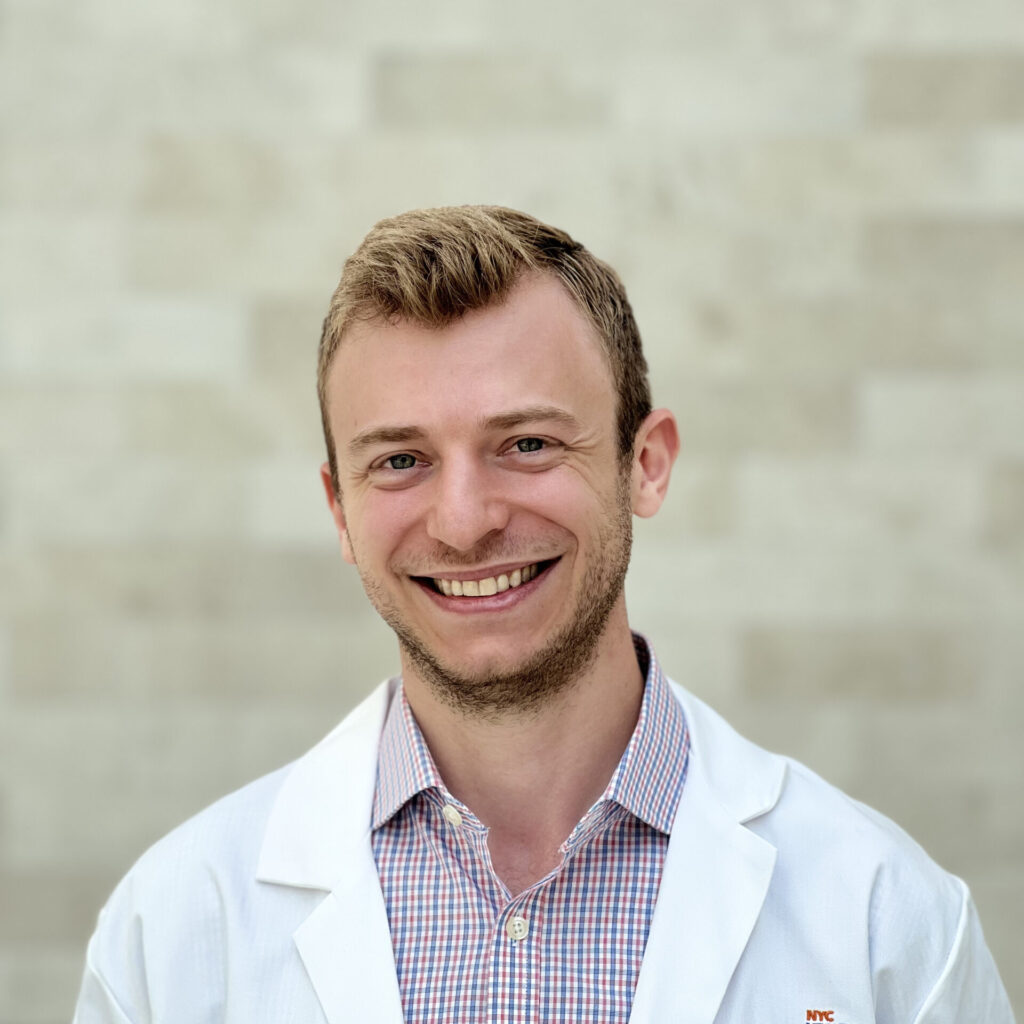
Elie Flatow, DO
POCUS Course Instructor
Chief Resident
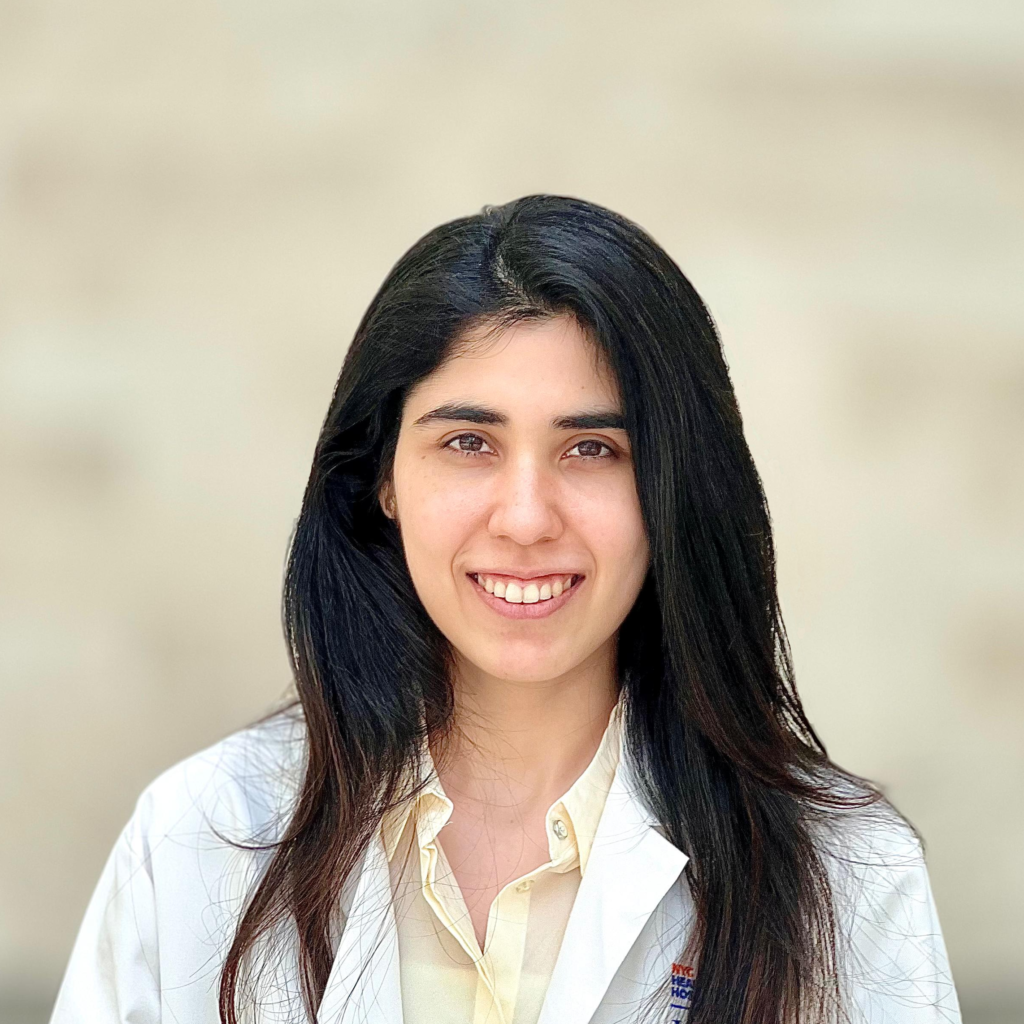
Adhya Mehta, MD
POCUS Course Instructor
Chief Resident
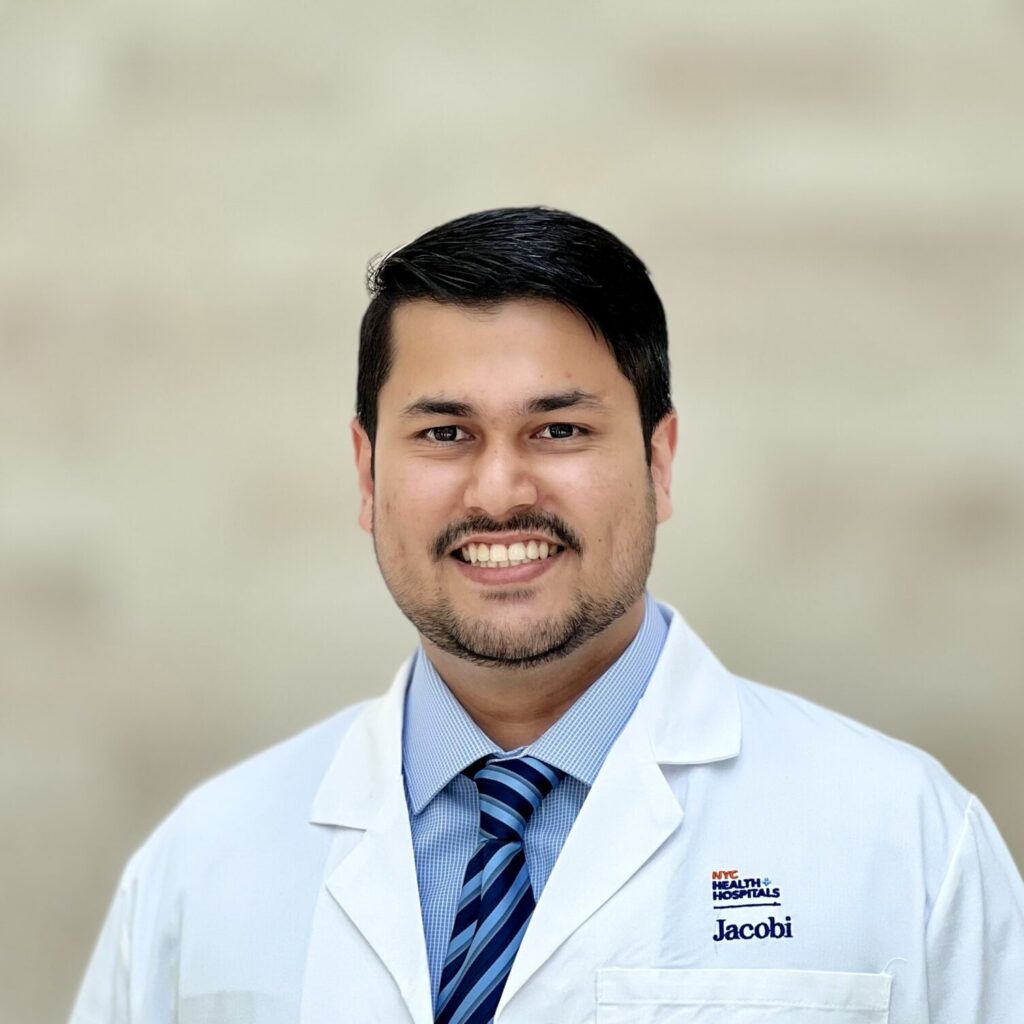
Sumant Pargaonkar, MD
POCUS Course Instructor
Chief Resident

